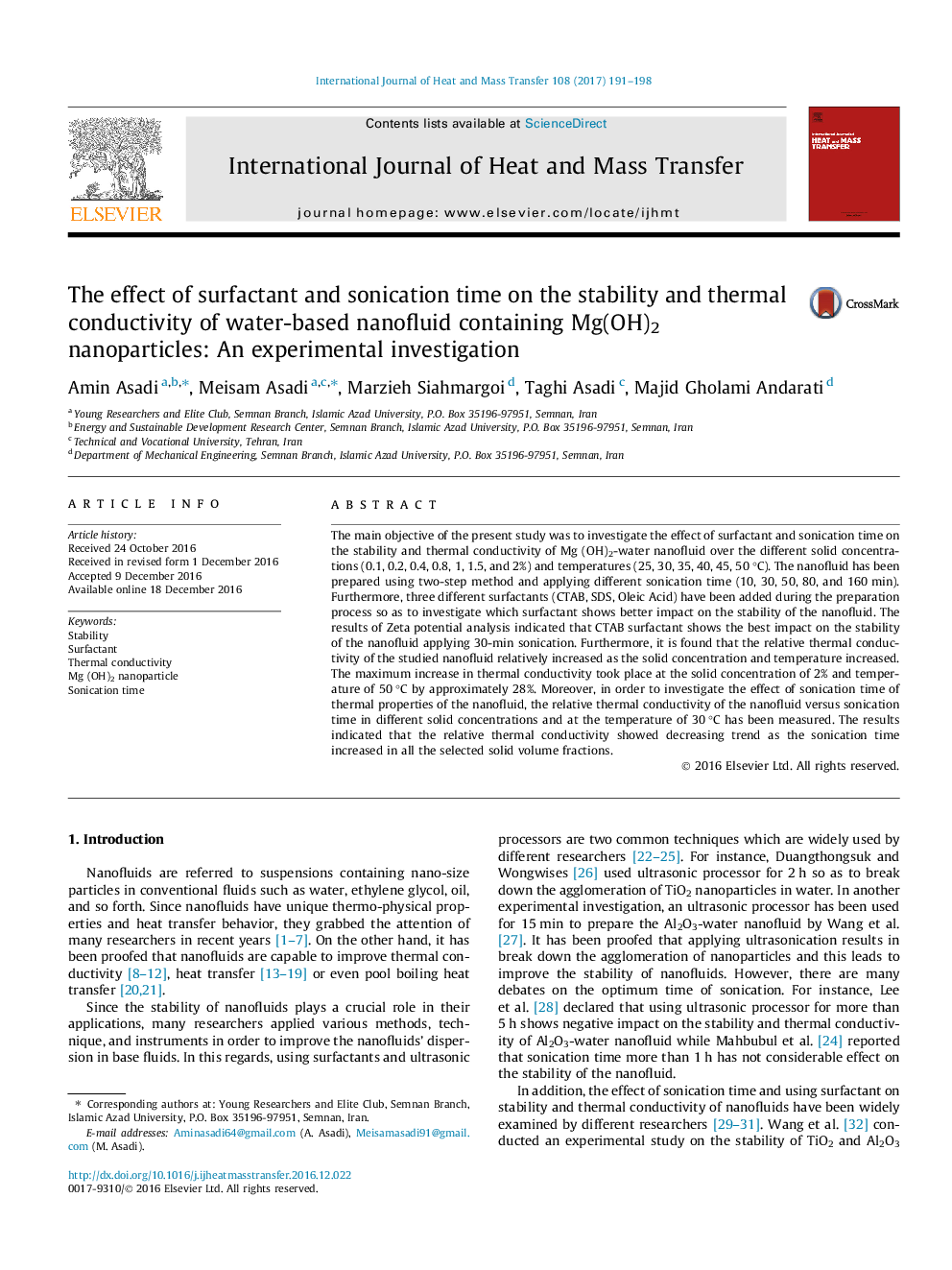| کد مقاله | کد نشریه | سال انتشار | مقاله انگلیسی | نسخه تمام متن |
|---|---|---|---|---|
| 4994269 | 1458034 | 2017 | 8 صفحه PDF | دانلود رایگان |

- CTAB surfactant found to be more effective compare to others.
- 30-min sonication time showed the best effect on the stability.
- Thermal conductivity showed increasing trend as the temperature increased.
- Increasing in solid concentration leads to increasing the thermal conductivity.
- Thermal conductivity showed decreasing trend as the sonication time increased.
The main objective of the present study was to investigate the effect of surfactant and sonication time on the stability and thermal conductivity of Mg (OH)2-water nanofluid over the different solid concentrations (0.1, 0.2, 0.4, 0.8, 1, 1.5, and 2%) and temperatures (25, 30, 35, 40, 45, 50 °C). The nanofluid has been prepared using two-step method and applying different sonication time (10, 30, 50, 80, and 160 min). Furthermore, three different surfactants (CTAB, SDS, Oleic Acid) have been added during the preparation process so as to investigate which surfactant shows better impact on the stability of the nanofluid. The results of Zeta potential analysis indicated that CTAB surfactant shows the best impact on the stability of the nanofluid applying 30-min sonication. Furthermore, it is found that the relative thermal conductivity of the studied nanofluid relatively increased as the solid concentration and temperature increased. The maximum increase in thermal conductivity took place at the solid concentration of 2% and temperature of 50 °C by approximately 28%. Moreover, in order to investigate the effect of sonication time of thermal properties of the nanofluid, the relative thermal conductivity of the nanofluid versus sonication time in different solid concentrations and at the temperature of 30 °C has been measured. The results indicated that the relative thermal conductivity showed decreasing trend as the sonication time increased in all the selected solid volume fractions.
Journal: International Journal of Heat and Mass Transfer - Volume 108, Part A, May 2017, Pages 191-198